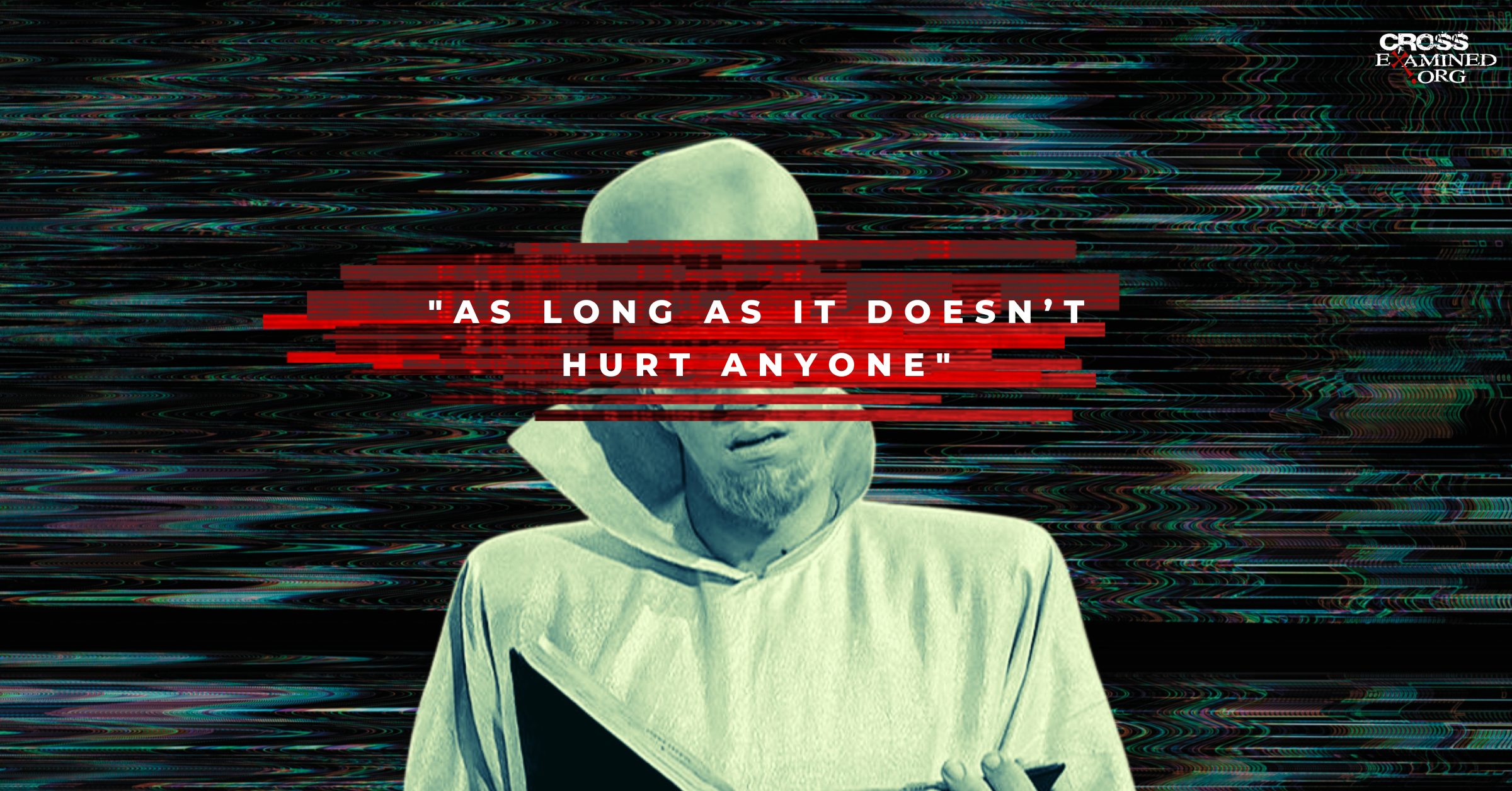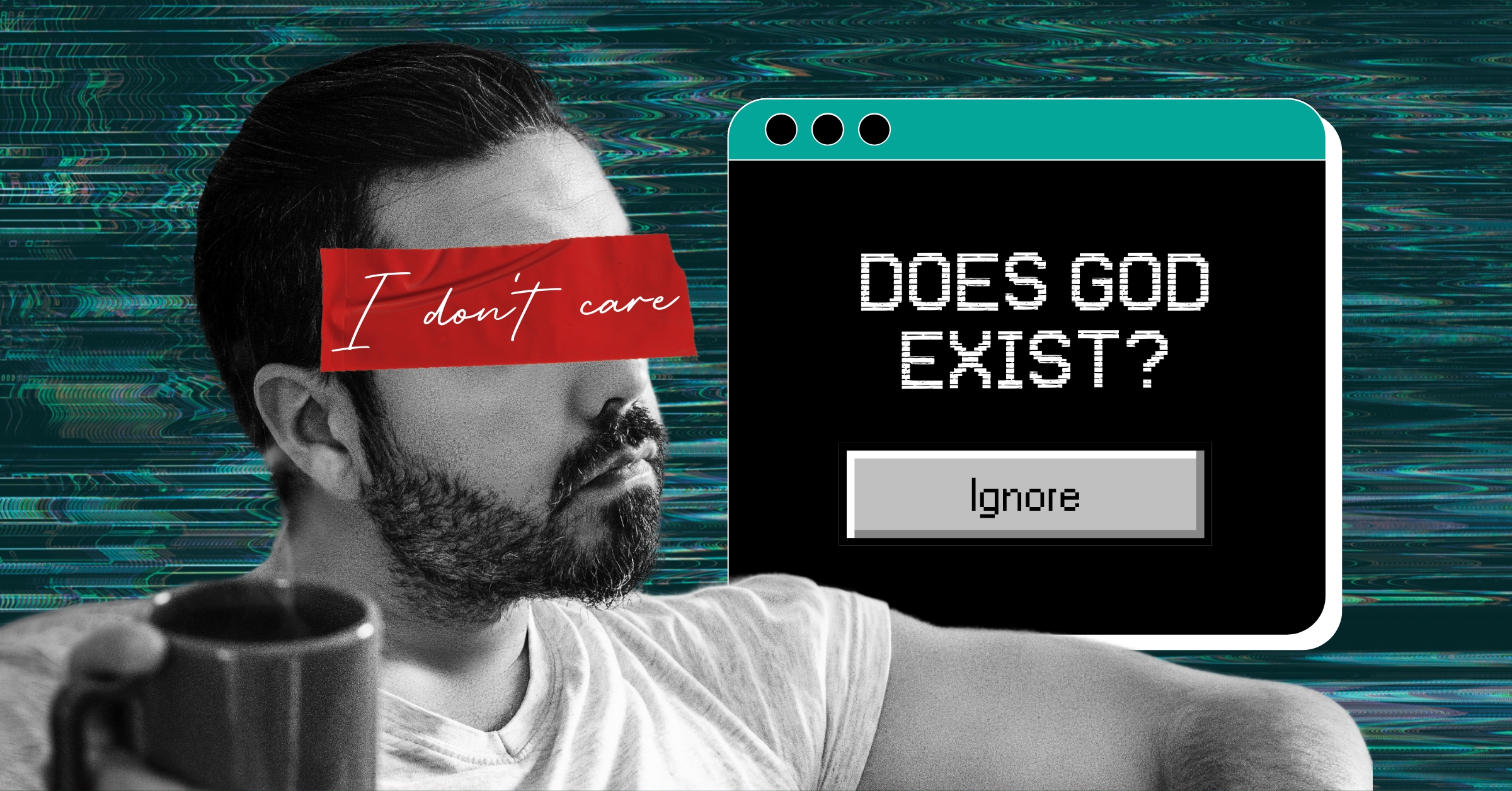Imagine a porcupine. He’s waddling around with his long pointy quills. He’s harmless, even cute until he gets scared or offended. Then he becomes an angry pincushion. Now image this porcupine is giant-sized, like a dinosaur. He’s bumping into things, knocking things over, leaving huge piercing quills behind him as if marking his territory. People and animals just stay out of his way for fear of getting trampled, stabbed, or otherwise canceled. Now imagine this porcupine is hyper-sensitive. He’s reactive, easily offended, easily frightened, distrusting, and very aggressive when upset. Now imagine he’s rainbow colored and you’re tasked with giving this huge moody multi-colored pincushion a great big hug! That’s what it feels like answering the question: “Is it biblical to be a Gay Christian?”
This is the kind of topic where it feels like any move is the wrong move. You can’t really hug a huge temperamental rainbow porcupine. The LGBTQ+ movement has grown into a cultural juggernaut, dictating new legislation, directing media, invading public and private schools, coopting corporations, butting into the healthcare system, reshaping social norms, even changing the English language. One of those linguistic innovations is the identity statement: “Gay Christian.” Our question today is whether it’s biblical to be a “Gay Christian”?
Loveless Truth or Truthless Love?
There is no way forward without risking injury and without offending someone. As Biblical Christians, all we can realistically hope to do with this triggering topic is to speak truth in love (Ephesians 4:15). As we try to answer whether the concept of “Gay Christian” is biblical, we do well to remember that we cannot responsibly sacrifice truth or love. We need both. And we need the wisdom to balance and leverage them for our best chance at pointing people to the God of the Bible. If we compromise too much we get truthless love. If we’re tactless and mean, we get loveless truth. Both distort Christ’s message. Both drive people away from the Faith. Loveless truth is no better than truthless love.
As Christians we have every reason to major on both truth and love, to balance them by way of wisdom. Sometimes it’s fine to be sharp and forceful with a truth jab. Other times we risk causing more spiritual injury in our delivery than they felt from their ailment. LGBTQ+ people can be incredibly diverse, but they are all human. That means at least three things: (1) they are hurting, (2) they’re sinners just like you and me, and (3) their only hope of salvation is in Christ alone. We’re in the same boat. With this in mind let’s see if we can bring some clarity to this prickly issue.
What does “Gay Christian” even mean?
The phrase “gay Christian” can point a few different directions. First it can be a description. It’s describing someone who is Christian and is same-sex attracted (whether practicing or not). It would be like saying, “I am a male-Christian,” “an Texan-Christian” or “a married, heterosexual, masculine, Christian who likes hot sauce, and weightlifting, and thinks about the Roman Empire at least once a day.” Descriptive language is perhaps the broadest, and least-problematic way to understand the phrase “gay Christian.” As a description, the phrase is just pointing out any true claims about a person. There is still a problem with this sense of “Gay Christian,” but we’ll get to that later.
Second, “Gay Christian” can be a group identity statement roughly equivalent to, “I affiliate with a brand of ‘Christianity’ that endorses homosexual practice.” Typically, that includes supporting gay-marriage, left-leaning politics, and progressive theology. Whether that brand of ‘Christianity’ is, in fact, Christian – that’s a different question for a different day. The point is, “gay Christian” could be (1) a description or a (2) group identity.
Third, “Gay Christian” can also be a personal identity statement. It’s saying that that individual, in his heart of hearts, his essence, his soul, is a “Gay Christian.” This is more than just a description. We can describe how a person is without identifying what that person is. Descriptive language alone doesn’t necessarily point out what defines the person. But when the phrase “Gay Christian” refers to one’s personal identity, that individual is defined as both gay and Christian in that order. “Gay” isn’t just a secondary, accidental, or unnecessary quality. It defines them. It’s not just how he is, or what he does. It’s who he is.
Critiquing the idea of “Gay Christian”
Of those three categories: (1) Description, (2) Group Identity, and (3) Personal identity, I will focus on that third sense: “Gay Christian” as one’s “personal identity.” There are problems with all three – since the word “gay” doesn’t only mean “same-sex attracted,” but often means more than that. It can refer to homosexual practice, gay lifestyle, gay-affirming politics and culture, and so forth. That sense of “gay” is a mismatch when paired with orthodox Christianity. Of course, people have tried to argue, from Scripture, that there’s no inherent problem with combining those, but that has never been a historic orthodox convention in Christianity.
What else do we need to know about LGBTQ+ issues?
Find out in “Correct, Not Politically Correct” by Dr. Frank Turek
Partial Truths
First we can commend this terminology for identifying “Christian” at the core of one’s identity. Christianity isn’t just something people toss on top of the pile, along with everything else in their lives. Biblically-speaking, to become a Christian means replacing all the other claims on your identity with God’s claim on you. Becoming a Christian means you are a new creation, “In Christ,” adopted into the family of God, no longer lost on your own, but found and claimed, no longer slaves to sin, but citizens of a new heavenly kingdom, (2 Cor 5:17; 1 John 3:1-2; Gal 5:1; Phil 3:20). All that means Christians are effectively redefined from the moment of salvation forward. The Apostle Paul says it this way:
“I have been crucified with Christ and I no longer live, but Christ lives in me. The life I now live in the body, I live by faith in the Son of God, who loved me and gave himself for me.” Galatians 2:20, NIV
So, the phrase “Gay Christian” is partly correct in the sense that Christianity isn’t just a descriptor or group affiliation, it’s an expression of one’s essence. It is one’s fundamental identity. Our identity is Christ-centered, not self-centered. Hence the name “Christianity” – we are “little Christs.”
That partial truth however, is not enough to redeem the phrase, “Gay Christian.” There are at least four problems with the phrase that, I suggest, disqualify the concept from standard usage in orthodox Christian circles.
Four Problems with Identifying as a “Gay Christian”
- It’s Unclear: Advocates for the phrase “Gay Christian” have been known to say that “Clarity is kindness.”[1] But the word “Gay” is ambiguous. It could communicate same sex attraction or homosexual practice. So, the expression “Gay Christian” creates confusion where clarity is needed. It would be more kind to replace that confusing label rather than unwittingly suggest to people that Christianity embraces homosexual practice.
- It’s Jesus+: Biblically speaking, Christians find their ultimate identity in Christ Jesus alone (Sola Christus). Not in Jesus plus our good works, plus nationalism, plus identity politics, or plus our sexual orientation. Whatever other features may describe and distinguish us (white, male, hetero/homosexual, American, nerdy, bookworm, pastor, backup dancer, etc.) all of these must be submitted to Christ’s lordship. No secondary identity should compete with His sovereign claim over us. This is important because our very identity can be an idol (not to mention a football in the game of identity politics). The title “gay Christian” adds to one’s identity in Christ by putting something in front of Christ. At best this is confused for mixing a secondary “identity” with one’s primary identity. At worst it makes an identity-idol out of one’s sexual orientation. By the way, this objection applies equally well to straight people. Neither hetero- nor homosexuality should compete with Christ in defining us.
- It can mean sin: The word “gay” can refer to temptation or practice. As a temptation, it’s not necessarily sinful but can easily become sinful depending on how one interacts with their temptation: surrendering to it, fantasizing about it, fixating on it, encouraging it, etc. And “gay” in the sense of homosexual practice is sin (Lev 18:22; 20:13; Rom 1:26-28; 1 Cor 6:9; 1 Tim 1:10; Jude 1:7). So, combining all that together, the phrase “Gay Christian” is deeply problematic for affixing to one’s Christianity something that might be sin, can readily turn into sin, and is itself a desire for sin. How could any of those affiliations with sin rightly serve in defining one’s identity in Christ? All those ties to sin are what Christ is delivering people from (in sanctification). That’s the identity of our old self, from back when we were “slaves to sin” (Rom 6:6). It’s not out new self since we are “declared righteous,” and that is what Christ takes on Himself since he has “become sin for us” so that we can be called holy and children of God (2 Cor 5:21). In Christ we’re not defined by our sin or by temptation to sin but by Christ Himself who saves us from sin.
- It’s Morally Absurd: Stepping back for a moment, the three senses of “Gay Christian” that we mentioned are all absurd. Whether it’s a “descriptor,” a “group identity,” or a “personal identity” the phrase “Gay Christian” is incoherent because we can’t just add any descriptor in front of “Christian” and still have a coherent, theologically sound, and Christ-honoring concept. This becomes abundantly clear when we start adding to our Christian identity other temptations which also have no righteous vent – Zoophile Christian, Pedo Christian, Voyeuristic Christian, Klepto Christian, or Homicidal Christian. I’m not saying that gay people are group-affiliated with all these evils. These are just examples of how absurd it is to combine our Christianity identity with a temptation to sin and somehow think that’s a legitimate pairing.
Why Words Matter
It bears repeating that we’re not just talking about descriptive statements. “Marybeth does this, looks like that, and is tempted by these things.” We’re talking about identity statements. Identity statements are attempts at expressing who we really are, not just how we happen to be at the moment. Speaking of repetition, if we repeat statements defining ourselves a certain way, that can have a fortifying affect on our sense of self. Repetition forms neural pathways, creating habits of thought, gradually shaping our character, and convincing us of the truth of something even if it’s not true.
The word we use to describe or identify ourselves can shape our sense of self by changing, limiting, or expanding how we think of ourselves. Our self-identifying terms lend momentum pushing us in their direction. Scripture has a lot to say against coarse insulting language and taming the tongue (Eph 5:4; Col 3:8; James 1:26). That applies to “self-talk” and identity statements too. None of this bodes well for the phrase “Gay Christian.” A better alternative would be to just receive our identify as “Christian,” or “Christ-Follower,” “child of God,” or “Disciple.” These acknowledge that as Christians we no longer define ourselves. Christ defines us. We can still describe ourselves in truthful ways as gay-attracted, straight, celibate-single, good friend, poker player, tea-drinker, beat-boxer, meat head, etc. But it’s vitally important to distinguish secondary descriptors from one’s primary identity in Christ. And one of the most clear, helpful, and theologically responsible ways to do that is to put no competitors beside Christ. We are Christians, not hyphenated faithers or adjectival disciples. We don’t follow Jesus+. We follow Jesus. He defines our identity at a deeper level than any part of our sin nature, human nature, or natural fact about us.
We are Christians, not hyphenated faithers or adjectival disciples. We don’t follow Jesus+. We follow Jesus. He defines our identity at a level that’s deeper than any part of our sin nature, our human nature, or any natural fact about us.
Endnotes
[1] Preston Sprinkle and Gregory Coles, “Faith, Sexuality, and Gender Conference,” [Conference] Center or Faith, Sexuality, and Gender, (Pella, IA: Third Reformed Church, January 11, 2023).
Recommended resources related to the topic:
Correct, NOT Politically Correct: How Same-Sex Marriage Hurts Everyone (Updated; downloadable pdf, PowerPoint) by Frank Turek
Intellectual Predators: How Professors Prey on Christian Students by Frank Turek (mp4 Download) (mp3) (DVD)
Tactics: A Game Plan for Discussing Your Christian Convictions by Greg Koukl (Book)
Letters to a Young Progressive by Mike Adams (Book)
Another Gospel? by Alisa Childers (book)
__________________________________________________________________________________________________________________________
Dr. John D. Ferrer is a speaker and content creator with Crossexamined. He’s also a graduate from the very first class of Crossexamined Instructors Academy. Having earned degrees from Southern Evangelical Seminary (MDiv) and Southwestern Baptist Theological Seminary (ThM, PhD), he’s now active in the pro-life community and in his home church in Pella Iowa. When he’s not helping his wife Hillary Ferrer with her ministry Mama Bear Apologetics, you can usually find John writing, researching, and teaching cultural apologetics.










